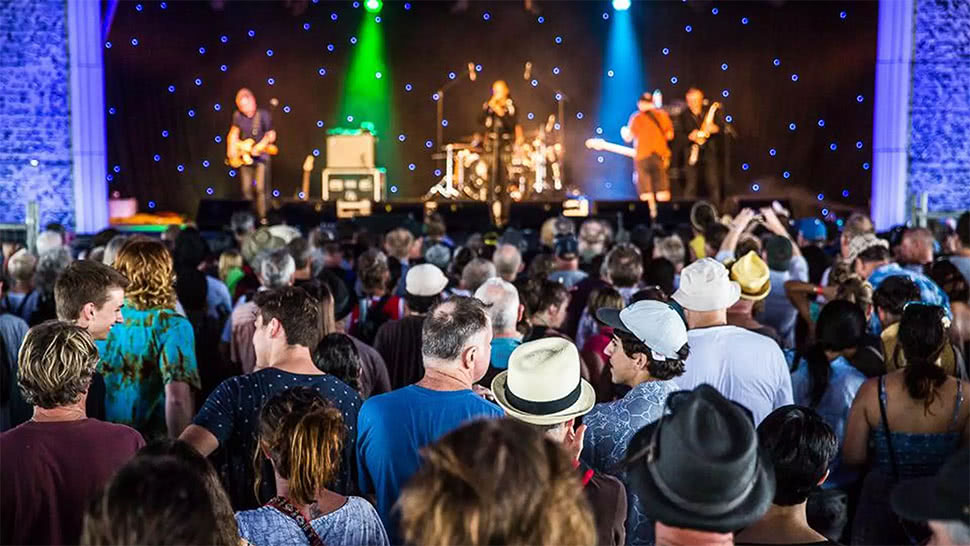After Bluesfest cancellation, live industry calls for insurance fund

With no JobKeeper, there are no assurances. And not much hope for the thousands of music industry workers rattled by the late cancellation of Bluesfest.
Just hours after the Byron Bay event was scrapped for the second year straight, Australian Festival Association and Live Performance Australia has called for a Business Interruption Fund, essentially an insurance fund for creative businesses to access in times of crisis.
“We were devastated to hear of another festival, Bluesfest in Byron Bay, cancelling due to necessary health precautions from the latest COVID-19 outbreak,” comments Julia Robinson, General Manager of the AFA.
“While the health risks are too great, the financial burden may become just as impossible for some festival operators,” she warns.
LPA has been calling for such a fund since last year.
“This is now a matter of urgency. It should be top of the agenda at the next National Cabinet meeting on 9 April,” says LPA Chief Executive Evelyn Richardson.
“This has cost hundreds of jobs, musicians who were about to perform their first gig in a year have been shut down, thousands of people who were attending the seated, COVIDSafe approved event have been turned away, and the local regional economy has been severely impacted.”
Now, LPA demands the NSW Government “step up and provide support to Bluesfest to ensure it survives a second shut down due to public health directives.”
The lobby bodies’ comments appear in separate statements issued early Thursday, as the gates were meant to open at Tyagarah Tea Tree Farm.
Those gates remain closed, after the NSW Minister of Health Brad Hazzard announced late Wednesday the show would not go on due to local community transmissions of the highly infectious COVID-19 variant.

The “distressing” situation, notes the AFA, is predicted to cost tens of millions of dollars, a burden that will be carried by organisers, suppliers, vendors, staff, crew and fans. And it’s amplified by the conclusion of JobKeeper, and by inconsistent social distancing protocols.
If Bluesfest and other live music events could operate “at higher capacities like the sporting industry by now, blows like this would be more manageable and less catastrophic for the entire ecosystem,” adds Robinson.
Bluesfest was struck down less than a week after the federal government announced more than $130 million in assistance for the live community, funneled into RISE and Support Act. It’s welcome, but it’s not enough says AFA.
“We also need to get our touring routes back up and running between states and internationally,” comments Robinson. “We welcome the additional RISE funding but if that is the targeted industry support that we are getting, we need it flowing now before there’s no industry left to support.”
The AFA was launched in late 2018 so its members could share and shape better practice strategies, from event liquor licensing to drug policy, harm minimization practice, building code compliance, green initiatives, user pays policing, event medical guidelines, and third-party ticket sites.
This article originally appeared on The Industry Observer, which is now part of The Music Network.


































